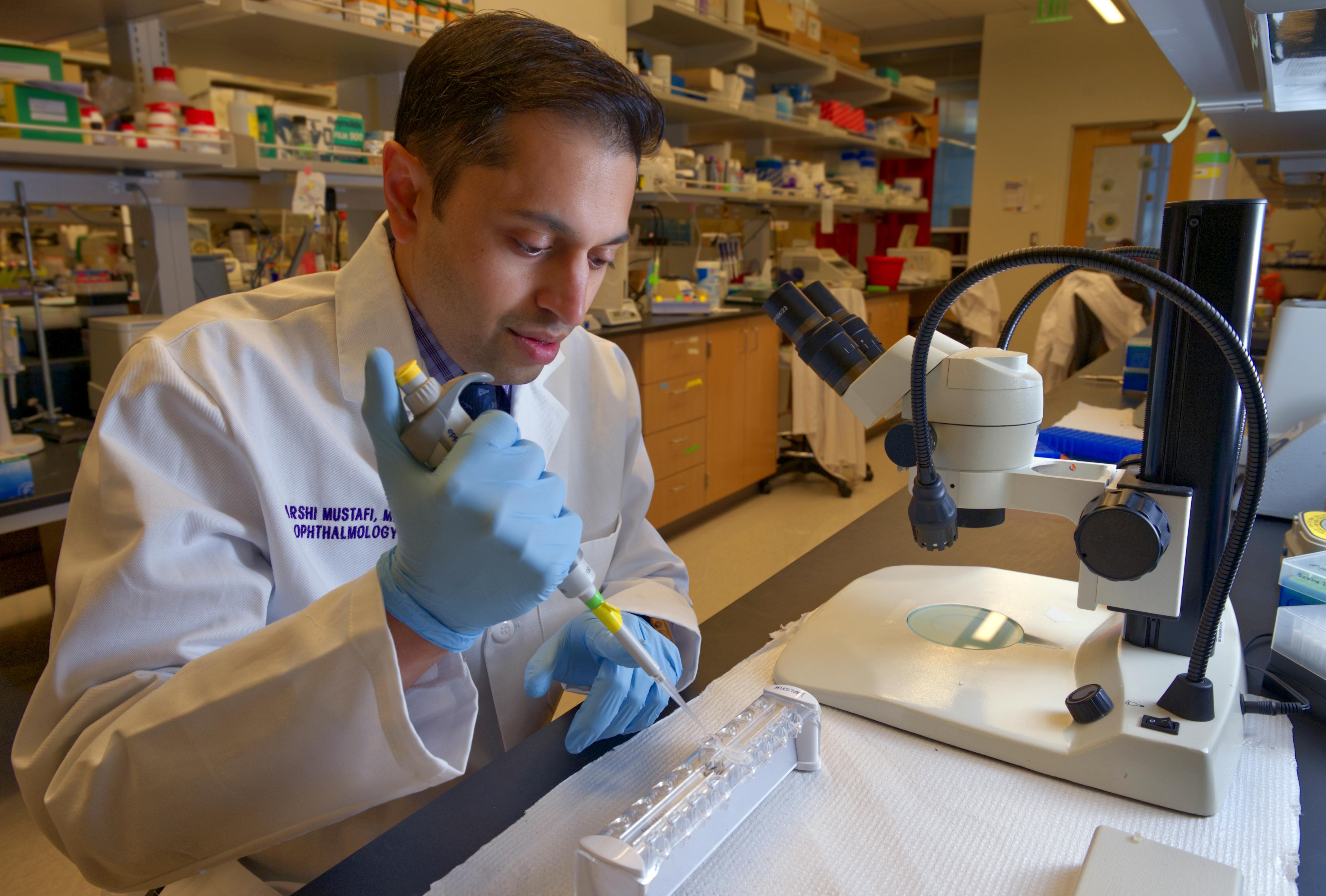
Mustafi Lab
The Mustafi lab is investigating the genetic basis of inherited retinal degeneration and the potential for therapeutic intervention to prevent the progression of blindness. Inherited retinal degenerations (IRDs) are a heterogeneous group of predominantly monogenic disorders that feature loss or dysfunction of photoreceptor cells as a primary or secondary event and have a prevalence of ~1 in 2,000 to ~1 in 3,000 individuals. In the pediatric population, IRDs constitute a significant cause of visual impairment and can be one of the first presenting features of a syndromic condition. Early genetic diagnosis of such conditions minimizes potential extraocular morbidity and allows appropriate genetic counseling. Identification of disease-causing variants is essential and can lead to more timely and accurate diagnosis in children to properly assess their inclusion in emerging therapies.

The evolution of sequencing technologies has allowed systematic dissection of the genetic basis of inherited retinal diseases. However, diagnosis remains challenging due to genetic heterogeneity. Even in cases with well-defined clinical features, only one pathogenic mutation can be found. Such monoallelic cases can account for 20% of patients with well-defined clinical characteristics of the disease. The second pathogenic mutation may be attributed to deep intronic mutations, but non-coding variants are difficult to classify and thus remain underdiagnosed. Detailed clinical characteristics of these variants can reveal the pathogenic nature of non-coding mutations and provide mechanistic insight into these blinding diseases.
The Mustafi laboratory is applying established short-read and emerging long-read sequencing technology to understand better pathogenic variants that lead to IRDs, especially in the pediatric population. Using isolated blood samples from affected IRD patients and their families, the lab can carry out genome sequencing to identify novel pathogenic variants of disease and reconstruct disease haplotypes, which has implications for interpreting disease risks in IRDs. The isolated blood samples can also generate patient-specific stem cells and retinal organoids. These disease-relevant tissues allow the discovery of disease-causing variants and pathogenicity of coding and non-coding variants. Using CRISPR-Cas9 gene correction, the necessity and sufficiency of variants can be studied. Overall, the lab aims to uncover the mechanistic details of IRDs to allow the development of targeted therapeutics to benefit patients treated by Dr. Mustafi.
For more information please visit the website: www.mustafilab.org